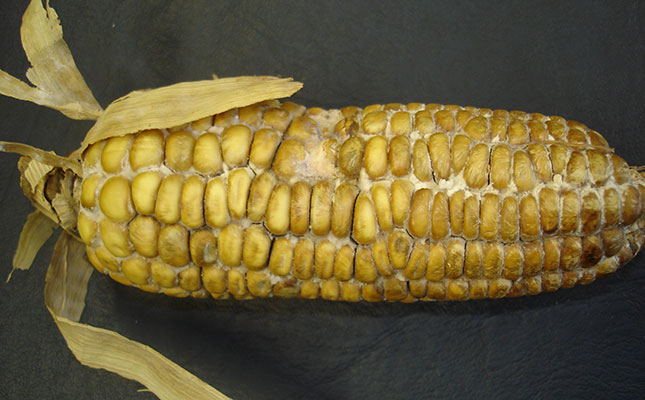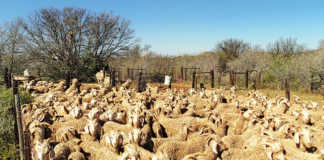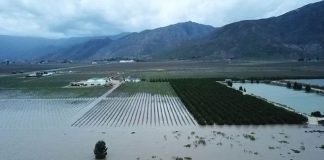
Photo: ARC Grain Crops
Maize farmers have been urged to scout for Diplodia maize rot amongst their crops.
Dr Belinda Janse van Rensburg, a plant pathologist at the Agricultural Research Council’s Grain Crops Institute, said outbreaks of Diplodia favoured late, heavy rain, and usually occurred during winter months, especially where high inoculum sources were present on stover from previous harvesting seasons.
“Diplodia is an important maize ear rot that reduces grain quality, and produces mycotoxins that can lead to nervous disorders in cattle and sheep when ingested,” Janse van Rensburg said.
Spore-producing structures could survive on maize stubble throughout winter, with spore production following in spring.
This meant that the fungus had the ability to infect plants throughout the growing season.
After rain or during high humidity, spores were released into the air, which landed on maize plants, infecting the base of the ear/leaf junction and ramifying upwards into the ear.
Late season infections could also occur when kernel moisture was low, but these symptoms were less obvious.
Janse van Rensburg said that harvesting early could help prevent Diplodia ear rot, as this reduced the time available for the fungus to grow on maize ears.
Late or winter rain kept the maize ears wet, and thus increased the opportunities for fungal growth. In these cases, producers were urged to harvest earlier at higher moisture levels, and dry the grain artificially.
According to Janse van Rensburg, producers also needed to keep their grain lands clear of stover to reduce inoculum concentrations.











